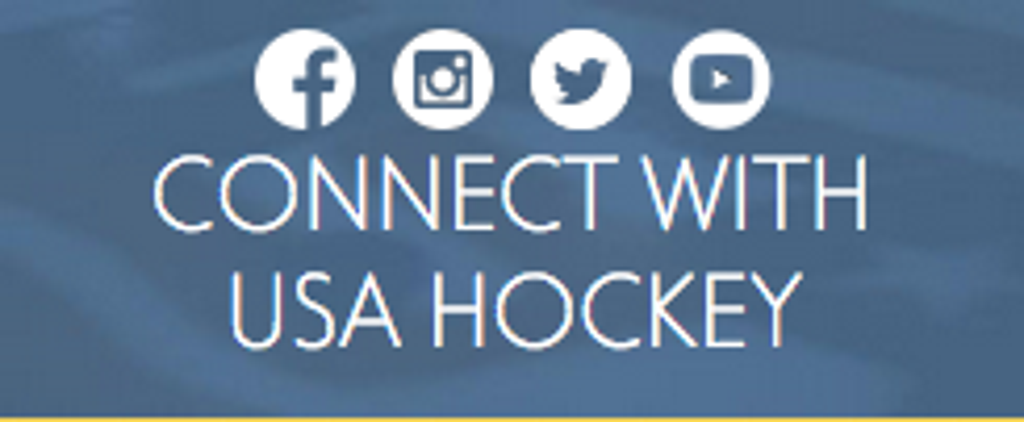Q-and-A with Scott Caulfield

Scott Caulfield, coaching education manager and head strength coach of the National Strength and Conditioning Association and strength coach for the Colorado College men’s hockey team, gives his advice to hockey coaches and players about how to train during the offseason.
USA Hockey: Why is it important for coaches to build an offseason training program and put it in place for their players?
Scott Caulfield: I think the biggest thing for the offseason is that it’s the best time that they can shift their focus from hockey skills to strength and conditioning. The fitness level and the strength that they’re going to be able to gain in the offseason is going to be a lot more beneficial and they’ll have a chance to really focus on that and have a lesser focus on the actual game of hockey, so that they can really build that strength and then maintain it during the season.
USA Hockey: What would you say should be the foundation of a workout plan for a hockey player during the offseason?
Caulfield: I think the foundation should be being able to have good movement patterns and then strengthening those good movement patterns through full ranges of motion. Now ideally, that would be done with barbells and dumbbells, but if you’re unable to have a good movement pattern that’s also a good chance to clean up any issues you may have or imbalances with body-weight exercises and prevent injury-type exercises – “pre-hab,” that’s kind of the buzzword people use. But really the focus should be looking at the entire body and working on full range of motion and good movement.
USA Hockey: Should these plans be age specific?
Caulfield: Yes. There’s a lot of myth surrounding strength training and USA Hockey has done a great job dispelling the myths and encouraging people to seek out qualified strength and conditioning coaches who are certified and understand age-appropriateness and what drills and exercises are appropriate for specific age groups.
USA Hockey: Do you have any advice for lesser-experienced coaches?
Caulfield: I would encourage him or her to seek out a certified strength and conditioning specialist, which is the NSCA, our organization, or even check out our website. There’s a ton of strength and conditioning content there. That would definitely help guide them. I would say definitely don’t do things that you may have done growing up, because they may not be the best ways to train. There are a lot of qualified specialists out there to help you.
USA Hockey: What would be some words of advice to keep the kids motivated and keep them working towards their goals?
Caulfield: I think they need to make it fun. Training needs to be hard work, but it also needs to be somehow a little fun, whether that’s incorporating games into it or competitions with your team. If you can create that aspect of fun within that hard work and competitive environment, you’re going to have a lot of success and buy-in from the athletes.
USA Hockey: Do you encourage the kids to play other sports?
Caulfield: Absolutely. Even with our hockey players (Colorado College) we’ll do different sports like ultimate Frisbee or soccer. We would do that stuff in the spring and I think it’s tremendous, especially if they’re playing a hockey season, a long season where they’re in skates all the time. They really need to get out and do some different movements and some different movement patterns to help them stay athletic.
USA Hockey: What are some of the benefits for an athlete to play a different sport for a while?
Caulfield: It’s going to teach them different coordination. Different movement patterns, different movement skills, changing speeds and really getting a lot of coordination are the biggest benefits of playing different sports.
USA Hockey: It’s also nice to take a break away from the ice.
Caulfield: Yeah, I think the offseason is a good time to build strength. A lot of time, when we talk about strength and conditioning, we talk about how resting is when we’re really doing the most of it. So it’s a great chance, especially for younger players to avoid burnout. Take a break, enjoy time with your friends, enjoy a vacation with the family, and don’t think about anything related to their sport. It’s a good chance to just play, ride a bike, have fun, whatever it is.
Recent News

The 2024 Toyota USA Hockey Sled National Championship Begins Tomorrow
- By USA Hockey 04/17/2024, 11:00am MDT

New Jersey Warriors Won A Title At The Inaugural Warrior National Championship in More Than One Way
- By Dan Scifo 04/16/2024, 11:30am MDT

Champions Crowned at Toyota USA Hockey Warrior National Championship
- By USA Hockey 04/15/2024, 2:30pm MDT

Excellence In Safety Award To Be Named After The Late Dr. Alan Ashare
- By USA Hockey 04/10/2024, 10:00am MDT

Inaugural Toyota USA Hockey Warrior National Championship Begins Thursday
- By USA Hockey 04/09/2024, 9:00am MDT

National Goaltending Symposium Preview: The Can’t-Miss Event of the Year
- By USA Hockey 04/04/2024, 4:00pm MDT

Army’s Zach McKelvie on the Importance of Character
- By Steve Mann 04/04/2024, 3:45pm MDT

Predators and USA Hockey Team Up for Honky Tonk Showdown
- By Dave Pond 03/27/2024, 8:15am MDT

Patty Kazmaier Award Confirms Izzy Daniel Belongs in Elite Company
- By Nicole Haase 03/26/2024, 10:15am MDT

How St. Louis Became the Perfect Site for the ACHA National Championships
- By Greg Bates 03/14/2024, 10:00am MDT
